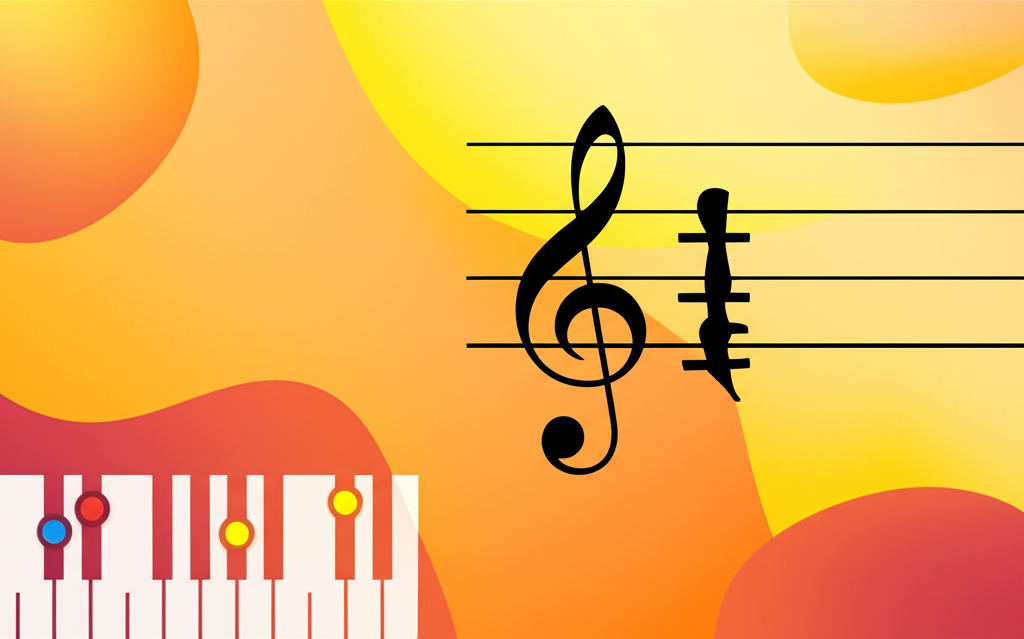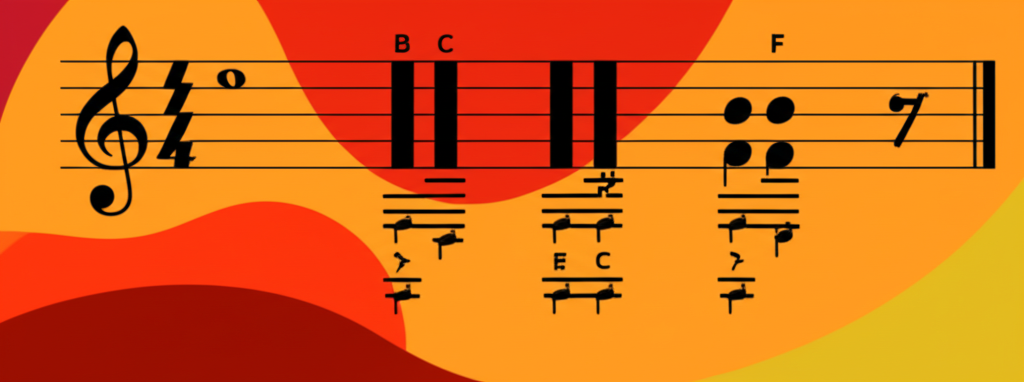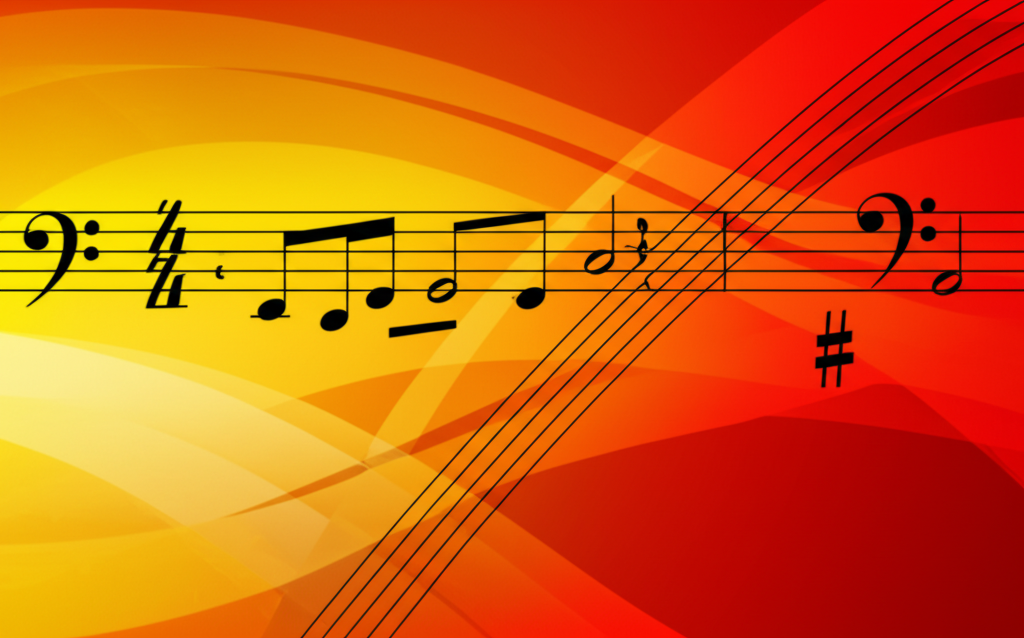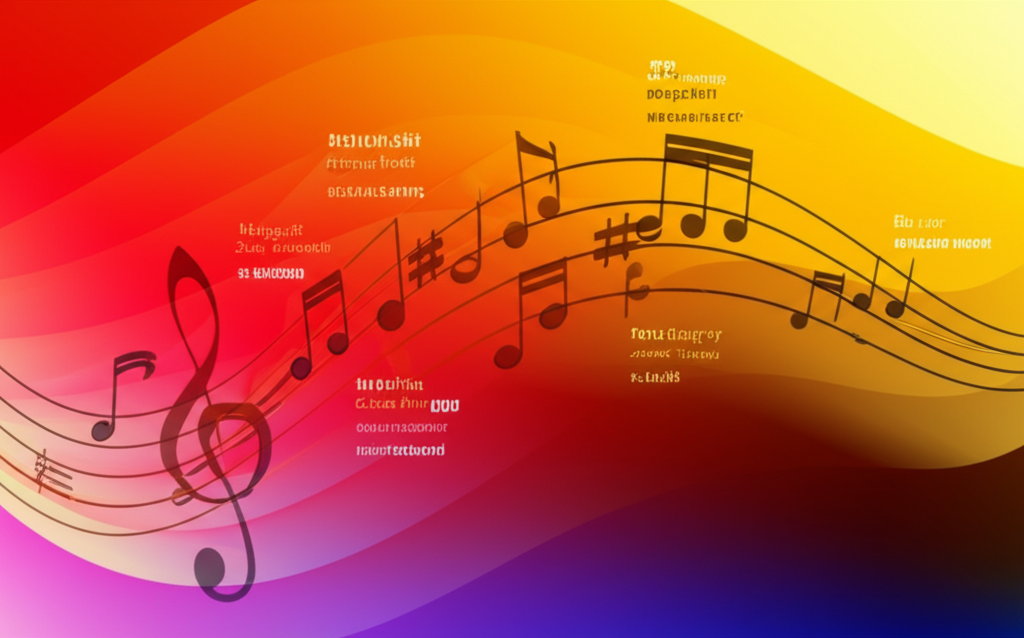Articles tagged with: "chromaticharmony"

Common Chord Progressions: The Building Blocks of Musical Harmony
Chord progressions are the harmonic foundations that drive musical compositions across nearly all Western musical styles. This comprehensive guide explores the most common and influential chord...
Read more
Unlocking the Lydian Dominant (Lydian b7): A Comprehensive Guide
Dive deep into the Lydian Dominant scale (Lydian b7), the sound behind *The Simpsons* theme and countless jazz solos. This guide breaks down its theory, shows you how to build …

Unveiling the Diminished Octave: A Musician's Guide to Dissonance
The diminished octave is a fascinating and highly dissonant interval that, while rare, serves as a powerful tool for composers to create tension, surprise, and deep emotional color. This article...

Diminished Chord: The Mysterious and Unstable Harmony
The diminished chord, a unique harmony built from a stack of minor thirds, is one of the most tension-filled and unstable sounds in Western music. This guide explores its structure, …
Read more
Major Scales: The Melodic Foundation of Western Music
The major scale is one of the most fundamental pillars of Western music, providing the essential framework for melody, harmony, and composition across centuries. This article explores the structure...

Musical Intervals: The Building Blocks of Music
Musical intervals are the distances in pitch between any two notes, serving as the fundamental element upon which melody, harmony, and scales are constructed. A strong understanding of intervals is...

Understanding Musical Chords: The Building Blocks of Harmony
Chords are the fundamental building blocks of harmony in Western music. This comprehensive guide explores chord construction, types, functions, and applications across musical genres. From basic...

The Tritone: Understanding the Devil's Interval in Music
A tritone is a musical interval that spans three whole tones, hence the name 'tritone'. It is also known as an augmented fourth (A4) or diminished fifth (d5), depending on …

Major Chords: The Building Blocks of Happy Music
Major chords are the bedrock of Western music, creating the bright, resolved, and "happy" sounds that power countless songs across every genre. This definitive guide breaks down their theoretical...

Understanding the Major Third: The Building Block of Bright Harmony
This article delves into the major third, a fundamental musical interval that is the key to creating bright, happy-sounding harmony. We define the major third (an interval of four semitones), …

The Ultimate Guide to the Dominant Seventh Chord
If there's one chord that acts as the engine of Western music, it's the dominant seventh. You've heard its tense, unresolved sound countless times in everything from Bach to blues, …

Minor Third Interval: The Heart of Minor Harmony
The minor third interval, a span of three semitones, is the essential building block of minor harmony. It provides the melancholic, introspective, and soulful character that defines minor chords,...

The Tritone: Mastering the Devil's Interval in Music
The tritone is one of the most fascinating and controversial intervals in music theory. Spanning three whole tones (hence the name "tritone"), this interval has been called the "devil's interval" …

The Major Eleventh Chord: A Dreamy and Complex Sound
This article explores the rich and sophisticated world of the major eleventh chord (Maj11) . We'll uncover its unique theoretical construction, explain its characteristic dreamy yet dissonant sound,...

Unlocking the Augmented Fifth: Your Guide to Musical Tension and Color
This article delves into the augmented fifth, a unique and colorful interval in music theory. We will explore its definition, its distinct, dissonant sound, and its crucial role in creating …

Mastering the Classic Rock I-IV-V Chord Progression
This article explores mastering the classic rock i-iv-v chord progression, covering its fundamental concepts, practical applications, and musical examples.

The Minor Third: Music's Melancholy Heartbeat
A fundamental musical interval spanning three semitones, the minor third is the essential building block of minor chords and scales. Its characteristically pensive, sad, or mysterious sound makes it...
Read more
Perfect Unison: The Fundamental Building Block of Music
The perfect unison is the most fundamental interval in music theory. It occurs when two notes of the same pitch are played simultaneously. This interval serves as the building block …

Unlocking the Diminished Sixth: A Guide to Its Tense Beauty
Dive into the world of the diminished sixth, a fascinating and highly expressive musical interval. This article demystifies its tense sound, explains its unique theoretical properties (including its...
Read more
A Guide to Dominant Modulation: Changing Keys Like a Pro
Dominant modulation is a cornerstone of Western music, providing a smooth and powerful way to change keys. This article demystifies this essential harmonic tool, exploring what it is, how it …

Unlocking the Maj7#5 Chord: A Deep Dive into its Sound and Application
The Maj7#5 chord is a paradox: simultaneously floating and tense, beautiful and unsettling. This article explores its unique sonic qualities, from its theoretical construction as an augmented triad...

The Chromatic Scale: The Foundational Alphabet of Western Music
The chromatic scale is the complete set of twelve pitches used in Western music, with each note separated by a semitone. This comprehensive guide explores the scale's structure, history, and...

Sus4 Chord: The Classic Suspended Harmony
The sus4 chord (suspended fourth) is a triad where the third is replaced by a perfect fourth above the root. This creates a distinctive, open-sounding harmony with a strong tendency …

Decoding the Augmented Seventh: Music Theory's Curious Interval
This article demystifies the augmented seventh, a fascinating and rare musical interval. We will explore its unique characteristic of being enharmonically equivalent to a perfect octave, meaning it...

The Perfect Fifth: Music's Strongest Interval
The perfect fifth is arguably the most important musical interval after the octave. Spanning seven semitones, its pure, stable sound makes it the bedrock of harmony in Western music and …

Mastering the Perfect Eleventh: A Complete Music Theory Guide
A Perfect Eleventh is a compound interval spanning an octave plus a perfect fourth. In simpler terms, it's the distance from a root note to the note eleven scale degrees …

The Essential Guide to the vi-IV-I-V Chord Progression in Alternative Rock
The vi-IV-I-V chord progression is one of the most recognizable and widely used progressions in alternative rock and popular music. In the key of C major, this progression would be: …
Perfect Unison Explained: The Fundamental Interval Every Musician Should Master
This article explores perfect unison explained: the fundamental interval every musician should master, covering its fundamental concepts, practical applications, and musical examples.

Unlocking the Secrets of the Minor 13th Chord
The minor 13th chord is a lush, sophisticated harmony that often functions as a point of resolution in jazz and contemporary music. This article demystifies its theoretical structure, explains the...

The Perfect Octave: A Fundamental Interval in Music
The perfect octave is one of the most fundamental intervals in music theory. It is the distance between two notes where the higher note has exactly double the frequency of …

Understanding the Major Thirteenth Interval
The major thirteenth is a compound interval that adds a sophisticated, airy, and often dreamy quality to music. Extending beyond a single octave, it is a cornerstone of advanced harmony, …

Minor Chords: The Emotional Core of Music
Minor chords are fundamental components of music, renowned for their melancholic, introspective, and emotionally complex character. This comprehensive guide delves into their theoretical structure,...

Perfect Fifth Interval: The Pillar of Musical Harmony
The perfect fifth interval, spanning seven semitones, is arguably the most important harmonic interval in Western music after the octave. Its pure, stable sound comes from a simple acoustic ratio...

Unlocking Symmetrical Sounds: A Deep Dive into the Whole-Half Diminished Scale (Synthetic Scale 1)
This article provides a comprehensive guide to the octatonic scale, also known as the diminished scale or Synthetic Scale 1. We deconstruct its two primary forms—the Whole-Half and...

What is a Musical Note? Understanding the Building Blocks of Music
A musical note is the fundamental building block of music, representing both a specific sound and a written symbol. Understanding its core properties—pitch, duration, dynamics, and timbre—is the...

The Composer's Secret Weapon: A Deep Dive into Chromatic Modulation
This article explores the powerful and expressive technique of chromatic modulation. We'll demystify how composers use chromatically altered chords, enharmonic respellings, and clever voice leading...
Read more
Unlocking the Augmented Third: A Rare and Expressive Interval
Dive into the augmented third, a rare but powerful interval in music theory. This article demystifies its structure, its enharmonic relationship with the perfect fourth, and its crucial role in...
Read more